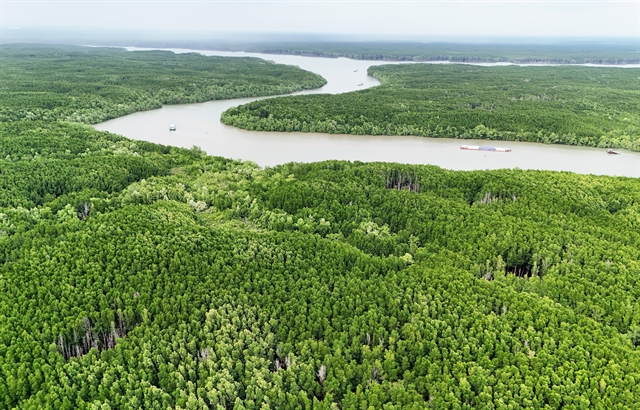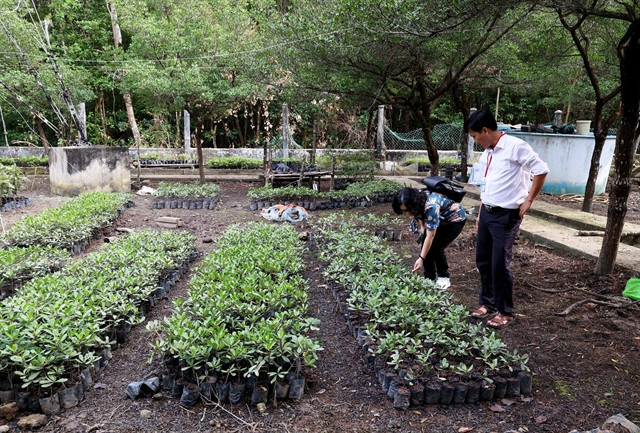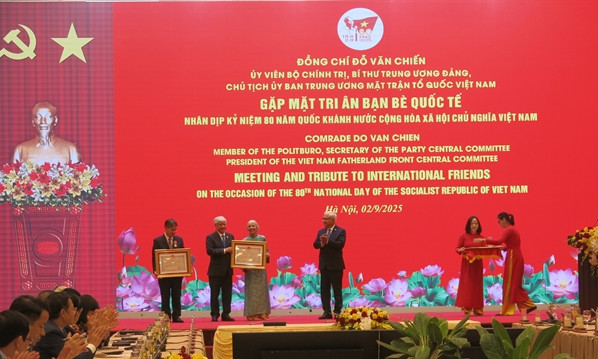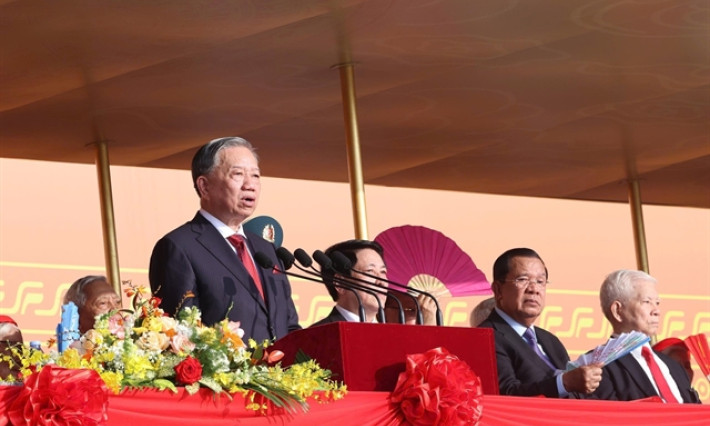Việt Nam unlocks carbon credit market with legal reforms
Việt Nam needs a well-defined legal framework to guide forest carbon projects and the issuance of carbon credits, ensuring an equitable distribution of benefits among the State, forest owners and other stakeholders.
Việt Nam holds significant potential for generating carbon credits, but implementation has been hindered by the shortage of clear regulations, especially concerning payment levels and the costs associated with emissions measurement, reporting, verification and dispute resolution.
This highlights the pressing need for a well-defined legal framework to guide forest carbon projects and the issuance of carbon credits, ensuring an equitable distribution of benefits among the State, forest owners and other stakeholders.
High potential, limited progress
According to the Ministry of Agriculture and Environment, the country’s forests hold substantial economic and environmental value. As of now, there are over 14.87 million hectares of forest, including more than 10.1 million hectares of natural forest and 4.7 million hectares of planted forest. The national forest coverage rate stands at approximately 42 per cent.
With this expansive forest area and rich biodiversity, Việt Nam has the potential to earn considerable revenue through carbon credit trading, ecotourism development, and sustainable forest product harvesting. For instance, the mangrove forests in Cần Giờ alone could generate between 1 to 5 million carbon credits annually.
Recognising this, in 2022, the Government issued Decree No 107/2022/NĐ-CP on the pilot transfer of emission reduction results and financial management of emission reduction payment agreements in the north central region. The pilot phase began upon issuance and will run through December 31, 2026.
Nearly three years into implementation, the pilot programme has proven to be a promising new source of revenue for long-term forest protection and development. However, several challenges remain, especially in managing revenue from carbon credit transfers by organisational forest owners and identifying eligible beneficiaries.
Notably, there is still no specific regulation on payment rates or cost coverage for essential tasks such as measurement, reporting, verification or carbon monitoring.
International partners are now actively working with the Ministry of Agriculture and Environment to discuss agreements on carbon credit exchanges. Several localities have been approved by the Prime Minister to pilot forest carbon absorption and storage service schemes.
Yet these projects remain stalled due to the absence of a national legal framework for transferring and exchanging verified emission reduction results or forest carbon credits.
On June 9, 2025, the Government issued Decree No 119/2025/NĐ-CP amending and supplementing Decree No 06/2022/NĐ-CP, outlining procedures for developing, appraising and approving carbon projects. The new decree stipulates that only organisations may register carbon projects. However, it does not yet specify which authority is responsible for implementing forest carbon projects.
This presents a challenge given the 2017 Forestry Law, which recognises multiple types of forest ownership including State-owned, organisational, household, individual and community based.
As such, clearer rules are needed to determine which agencies, organisations or individuals may develop forest carbon projects under these diverse ownership structures.

To address these challenges, the Ministry of Agriculture and Environment is currently seeking public feedback on a draft decree governing forest-based carbon sequestration service.
The proposed decree provides detailed guidance on Article 63 of the Forestry Law, covering eligible participants, payment mechanisms, financial management and service delivery conditions, along with principles for ensuring transparency, accountability and equitable benefit-sharing.
Harmonising interests
According to the draft decree, service providers offering forest-based carbon absorption and storage must register and implement carbon forest projects in compliance with legal requirements. This includes conducting emissions reduction activities and managing the full measurement, reporting, and verification cycle before receiving forest carbon credits.
These projects must contribute to Việt Nam’s nationally determined contributions (NDCs) on emissions reduction and may deliver services through contracts or transactions on the domestic carbon exchange.
Service users must be legally recognised organisations in Việt Nam and commit to fulfilling their contractual obligations or abiding by the operational rules of the domestic carbon market. They are also required to meet all relevant financial obligations under Vietnamese law.
The draft decree emphasises that forest carbon services must be provided and used transparently and responsibly, with a focus on balancing the interests of the State, forest owners and other stakeholders, while upholding Việt Nam’s international commitments on greenhouse gas reduction.
Once forest carbon credits or verified emissions reduction results have been traded, whether through contracts or the domestic exchange, they cannot be re-sold or transferred to other users. Revenue from these trades belongs to the forest owner and must be reinvested in forest protection and development.
Nguyễn Tuấn Quang, Deputy Director of the ministry’s Department of Climate Change, said that on January 24, 2025, the Government approved a master plan for developing Việt Nam’s carbon market. The ministry is now finalising implementation guidelines. The market will include two components: a compliance market (for emissions quota trading) and a voluntary market (for carbon credit transactions).
From 2025 to 2026, the market will target three high-emission sectors, electricity, steel and cement, which together account for roughly 40 per cent of the country’s total emissions. Current priorities include establishing a national carbon credit exchange, as well as a registration and issuance system to enable international market linkages from 2028 onward.
Việt Nam is also encouraging domestic organisations and businesses to develop carbon credits under voluntary mechanisms aligned with Article 6 of the Paris Agreement. The ministry is working with the Ministry of Finance to draft a separate decree regulating international carbon credit transactions.
Additionally, the country is supporting the growth of privately operated voluntary carbon credit exchanges. A notable example is the ASEAN Carbon Credit Exchange, which connects buyers and sellers under both international and domestic standards.
However, Quang cautioned that carbon credits must meet strict technical and legal requirements before they can be officially recognised and traded. Projects must comply with a robust system to ensure environmental integrity. The Department of Climate Change, he added, will continue providing technical and legal support to help businesses participate in the pilot market in 2025.
Việt Nam is currently prioritising green economic development, energy transition and environmental protection. The country aims to begin piloting the carbon credit market by the end of 2025.






